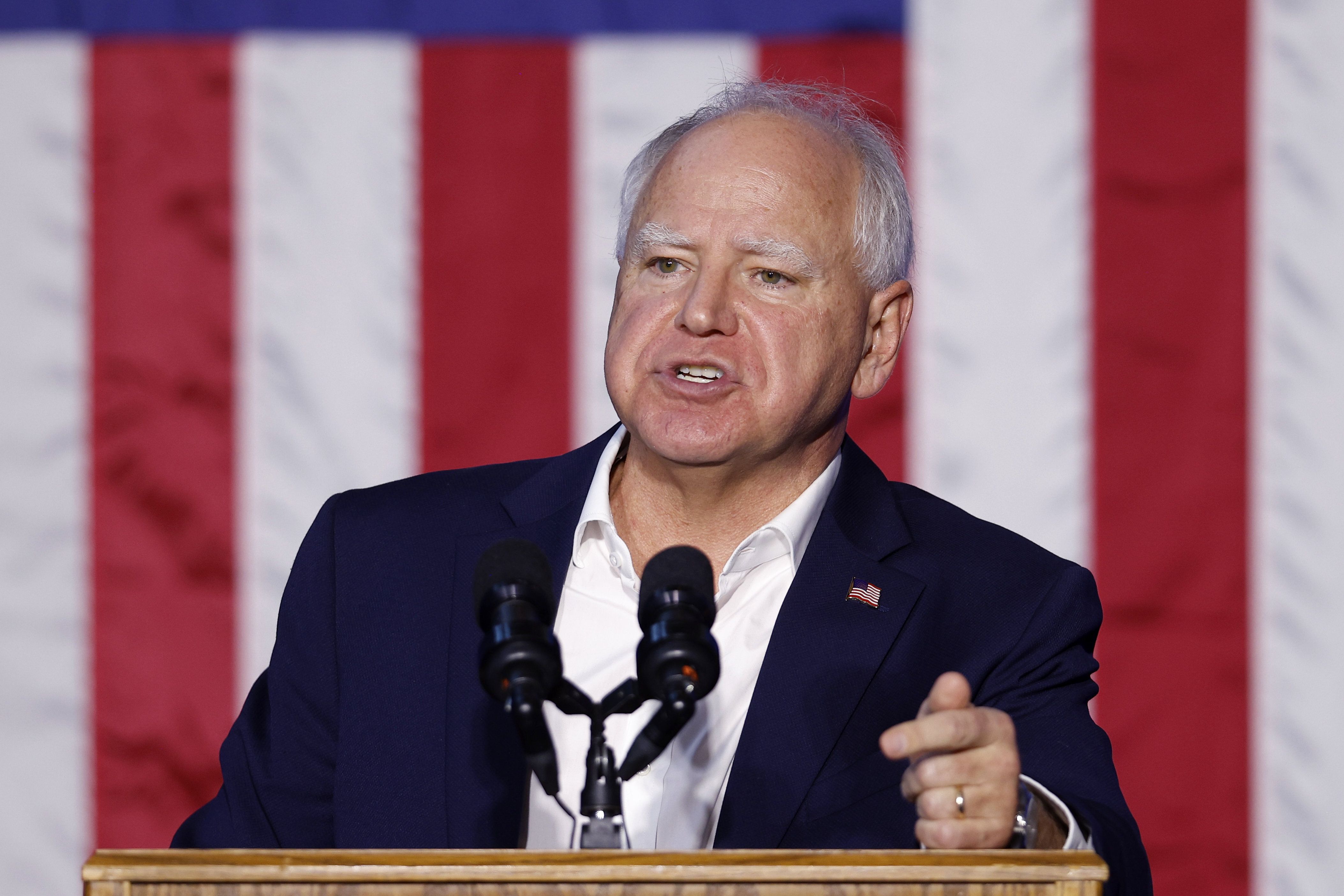Minnesota Governor Tim Walz has responded to the recent FBI raid targeting providers within the state’s Housing Stabilization Services program.
The raid, which involved multiple search warrants at locations tied to five Twin Cities providers, is part of a broader federal investigation into fraudulent billing practices in the state’s Medicaid services.
The Housing Stabilization Services program is designed to help older adults and individuals with disabilities, including those struggling with substance use disorders and mental illness, secure housing.
However, the program has come under scrutiny after the FBI uncovered alleged fraudulent activities involving service providers who billed the state for services they did not deliver.
Governor Walz, who has been working to strengthen oversight and prevent fraud in state programs, vowed to hold those responsible accountable while emphasizing that his administration had put new safeguards in place to detect such fraudulent activities.
The FBI raid comes as part of a wider investigation into suspected fraud in Minnesota, particularly in state Medicaid programs. The latest incident follows the high-profile Feeding Our Future case, which revealed millions of dollars in fraudulently obtained funds meant to support child nutrition programs.
Speaking to WCCO in an interview, Walz expressed his commitment to cracking down on fraud in the state. "If you're going to commit these crimes in Minnesota, you are going to get caught," Walz said.
"We have the tools in place to prevent these crimes, and we will continue to cooperate with law enforcement to make sure those who try to cheat the system are held accountable."

Despite Walz’s assurances, the state’s continued struggles with fraud have put his administration under intense scrutiny. Acting U.S. Attorney Joe Thompson described the situation as a serious problem that requires broader systemic changes.
The FBI’s raid on multiple locations, including St. Paul, Roseville, Blaine, Little Canada, and Woodbury, pointed to vulnerabilities within the Housing Stabilization Services program that allowed fraud to flourish.
In response to the growing concerns about fraud, Walz pointed to new safeguards that have been implemented to detect and prevent fraudulent activity in state programs.
He stressed that his administration had taken steps to increase oversight, including the appointment of a new Inspector General (IG) to oversee state agencies and bolster fraud detection capabilities.
“You’re always gonna find people trying to cheat the system,” Walz said, acknowledging the challenges in combating fraud. “But I think this legislative session with a new IG that’s over there, the new tools that we have, and just the capacity for us… we’ve made strides.”
One of the key technological advancements Walz highlighted was the use of AI tools to track fraudulent activity. However, he also expressed frustration that these tools were not yet fully integrated into state operations.
"I wish we would have gotten a little more,” he admitted. “The one thing I wish we would have gotten are some AI tools that would help us on this."
The use of AI and other advanced technologies is seen as crucial in helping state agencies detect fraud in real time and prevent future incidents from occurring. However, Walz’s acknowledgment that more needs to be done signals that the problem may be more complex than anticipated.
Republicans have been quick to criticize Walz’s handling of fraud in state programs. Rep. Kristin Robbins (R-Maple Grove), who chairs the House Fraud and State Agency Oversight Committee, called the latest fraud case an “enormous failure” by the Walz administration to protect taxpayer dollars.
“This follows the same pattern the Fraud Committee has been highlighting for months,” Robbins said. “Minnesota expands unregulated Medicaid services, and fraudsters jump in to exploit lax oversight by DHS to steal millions from taxpayers and the poor.”
Robbins and other Republican lawmakers have argued that the state’s expansion of Medicaid services, without adequate oversight, has led to widespread abuse. They have called for stronger regulations and more oversight from the governor’s office to prevent similar incidents in the future.
“Once again, we see that the Walz administration has failed to safeguard the taxpayer dollars entrusted to them,” Robbins added. “This is a direct result of the lack of oversight in Minnesota’s Medicaid programs. Fraudsters are exploiting the system, and it’s the people who need these services that are paying the price.”
The continued revelation of fraud in Minnesota state programs has raised concerns about the long-term impact on vulnerable populations who rely on these services.
The Housing Stabilization Services program, which assists older adults and individuals with disabilities, is especially important to those who have few other resources available to them.
Walz himself acknowledged the importance of balancing social service expansion with adequate safeguards. “Minnesota is a generous state, and I think there is a tendency to err on the side of making sure children get food, making sure people have housing stabilization,” he said.
“But I’ve told our agencies, we can have the best intentions, but there are bad folks that are trying to do this.”

While Walz has defended the state’s efforts to support vulnerable citizens, critics argue that expanding services without ensuring robust oversight has made these programs prime targets for fraud.
The Feeding Our Future scandal, which involved millions of dollars in fraudulent claims for child nutrition programs, has already damaged the public’s trust in Minnesota’s ability to manage social services. The latest fraud investigation into the Housing Stabilization Services program only compounds these concerns.
Federal law enforcement agencies, including the FBI and U.S. Attorney’s office, have been involved in investigating fraud in Minnesota’s social service programs. Acting U.S. Attorney Joe Thompson has emphasized the need for a broader reckoning within the state to prevent further abuse.
“Minnesota is a generous state, but we need to recognize that there are bad actors trying to take advantage of these well-intentioned programs,” Thompson said. “This fraud isn’t just a matter of individual wrongdoing; it speaks to the vulnerabilities within our systems that need to be addressed.”
Thompson’s comments reflect a growing sense of urgency surrounding the issue, as both state and federal officials grapple with how to strengthen fraud detection systems and prevent further misuse of public funds.
Walz has pledged full cooperation with federal investigators and law enforcement as they work to uncover the full scope of fraud in state programs.
He reiterated his commitment to transparency, saying that his administration would continue to work with the Department of Justice and the FBI to hold those responsible accountable.
“While this is obviously troubling, I want the people of Minnesota to know that we are actively working to ensure that fraud is detected early and dealt with swiftly,” Walz said. “We will continue to improve our systems and make sure that this doesn’t happen again.”

However, critics of Walz’s administration have expressed doubts about the effectiveness of these efforts, arguing that his focus on cooperation with federal authorities may not be enough to restore public confidence in state programs.
The growing number of fraud cases in Minnesota highlights a broader trend that is emerging across the United States, where social service programs and healthcare-related initiatives are being exploited by bad actors.
The combination of unregulated expansions in Medicaid services and lax oversight has created an environment where fraud can flourish.
The Minnesota incidents are part of a nationwide pattern of abuse, as fraudsters increasingly target public programs designed to assist vulnerable populations.
From healthcare fraud to food assistance fraud, the increasing sophistication of fraudulent schemes has made it more difficult for government agencies to detect and prevent abuse.
The ongoing investigation into fraud in Minnesota’s social service programs has placed Governor Tim Walz and his administration in the spotlight, as both state and federal authorities work to address the issue.
While Walz has defended his administration’s actions and vowed to strengthen oversight, the continued revelations of fraud have raised questions about the adequacy of existing safeguards and the state’s ability to manage taxpayer dollars effectively.
As the investigation into the Housing Stabilization Services program continues, Walz faces mounting criticism from Republicans, who argue that the state’s lax oversight has allowed fraud to flourish.
The outcome of the investigation and the steps taken to prevent future fraud will have significant implications for the state’s social service programs and the public’s trust in their government.
With the growing concerns about fraud in Minnesota, it remains to be seen whether the state’s efforts to address these issues will be enough to restore faith in its ability to manage social programs and protect taxpayer funds.





